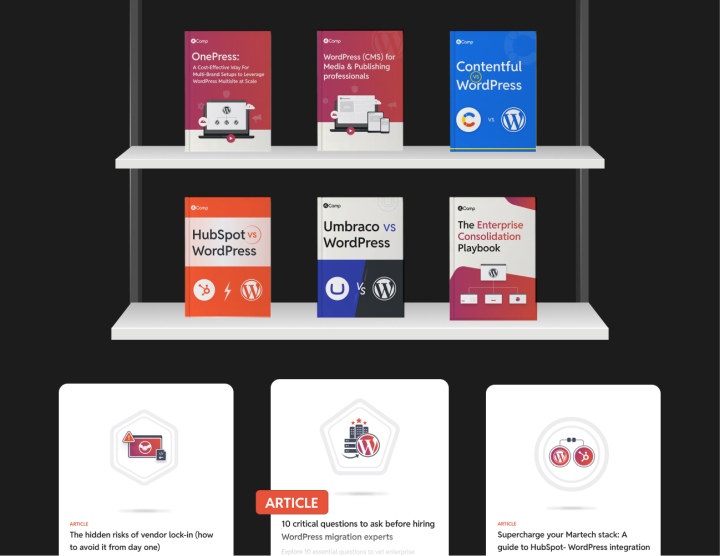Gutenberg vs Elementor: FAQs
If you’re evaluating both Gutenberg and Elementor, these answers cover key differences and considerations.
What are the key differences between Gutenberg and Elementor?
Gutenberg is WordPress’s native block editor, built into the core, lean by design, and evolving fast. Elementor, on the other hand, is a powerful third-party visual builder. One’s minimal and native, the other is feature-rich and external. Both help you build your WordPress content/pages, and site visually and easily, just in different ways.
Which one is better for beginners?
If you’re already familiar with WordPress, Gutenberg’s clean interface makes it easy to pick up. Elementor’s visual approach is intuitive as well but it can come with a slightly bigger learning curve.
Which editor is better for performance?
Generally, Gutenberg wins on performance mostly because it runs right from the WordPress core. Elementor-powered designs can load fast too but only if you’re careful with how you build them. Also, any widgets, animations, and third-party add-ons you use will also impact Elementor’s performance.
Can I use both Elementor and Gutenberg together?
Yes, you can build some parts of a page or site in Gutenberg, others with Elementor. Just keep in mind: using multiple editors/page builders can affect performance and also cause compatibility issues.
Is Elementor or Gutenberg better for SEO?
Both are SEO-friendly, but Gutenberg’s leaner codebase often means faster load times out of the box, which search engines like. Elementor handles SEO too, but might need optimization.
Which option is more cost-effective?
Gutenberg is free. Elementor has a limited free version, but for serious design power, you’ll likely need a paid plan.
Which editor is better for advanced design customization?
Elementor gives you loads of design freedom: think templates, animations, widgets, and pixel-perfect tweaks. Gutenberg is catching up fast with patterns and full site editing, but it’s still more structured than visual (which is also by design, by the way, and has its benefits).
Does Elementor slow down websites?
It can, especially if you go all-in with heavy widgets and effects. But with smart optimizations—caching, compression, and careful asset loading—it can still run well. Gutenberg, being simpler, generally stays quicker.
Which page builder is more user-friendly for clients to manage their websites?
Gutenberg is simpler for most content updates—add a block, edit text, hit publish. Elementor offers more control, but may need a short walkthrough if your clients aren’t familiar with visual builders.
Can I transition from Elementor to Gutenberg easily?
Gutenberg doesn’t support one-click conversion from Elementor, so you’ll need to manually rebuild your pages. Simple layouts are usually quick to recreate. But if your Elementor pages use advanced layouts, custom widgets, or dynamic content, expect a fair bit of hands-on work.







